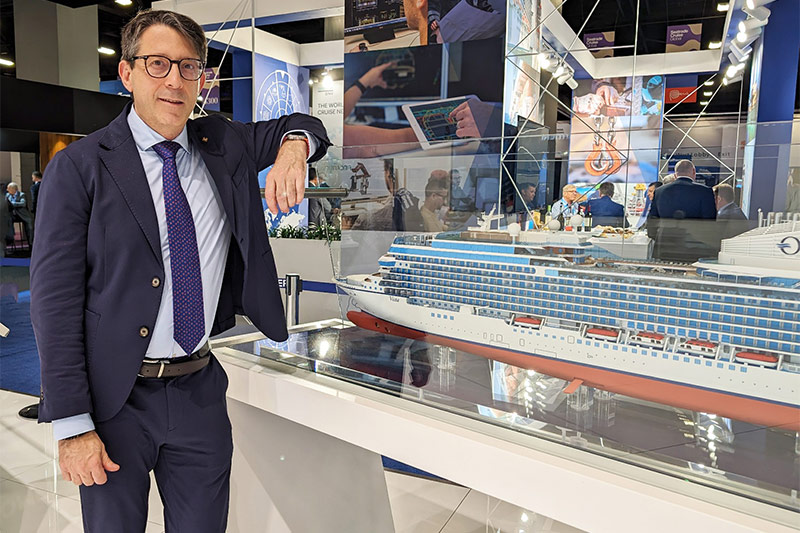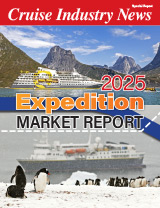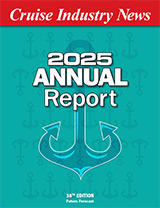Coming off a big newbuild order from Norwegian Cruise Line Holdings, Daniele Fanara, director newbuilding and after-sales at Fincantieri, is positive on the future.
“We are serving all segments of the market, from small luxury vessels to mega-size vessels to upper premium,” said Fanara, speaking to Cruise Industry News. “This covers all the brands in the cruise industry.”
Fanara said Fincantieri was very proud to be working with a variety of operators and being able to serve each of them in a tailored, customized way.
“We have cross fertilization with our technology, including the capacity to design the vessel,” he added.
NCLH Order
The new Norwegian Cruise Line Holdings order for eight ships includes orders for all three company brands, with new classes of ships for each of them. Norwegian, Oceania and Regent will all get new bigger ships, with orders for the Norwegian brand stretching to 2036.
“We are proud the trust that Norwegian gave us to develop such an important program,” said Fanara.
Looking at future technologies, Fanara said the ships were being developed.
“Our attention is focused on three main fuels,” he said. “One is LNG, one is methanol, and one is hydrogen. Hydrogen is the most innovative one. We are developing new ideas on how and when we can implement hydrogen onboard the vessels.”
New ships for Oceania and Regent are being developed to be methanol ready.
“Today there is no real answer on the fuel of the future,” Fanara continued. “It’s a matter of availability. What’s important from our side is that we are always studying the latest technology available. We are also exploring CO2 capture technology.”
Fanara said among the alternative fuels, LNG was notable in the fact it was being used today.
“There are ships sailing on LNG. The other technology is in a different phase of development. We need to monitor them so we are ready to implement them if necessary,” he explained.
Questions are coming in from cruise lines on alternative fuel practicalities, Fanara said, but with the most questions on hydrogen.
“It is the most innovative, it is the most unknown.”
Industry
Fanara called the cruise industry resilient.
“Soon after Covid, the speed at which the industry recovered and came back to strong booking and revenue levels is incredible,” he said.
Fanara expects other orders to follow, citing market demand and the value gap between cruise- and land-based vacations.
Shipbuilding Costs
Costs are up to build ships.
“A greener vessel is for sure more expensive to build,” Fanara noted. “But is the value of this additional cost worth it for the industry?
“The owners can say the ships are more expensive. We had Covid, we had wars and the result of this has been inflation. If you mix inflation and the technology transition, the result is not less expensive ships.”




